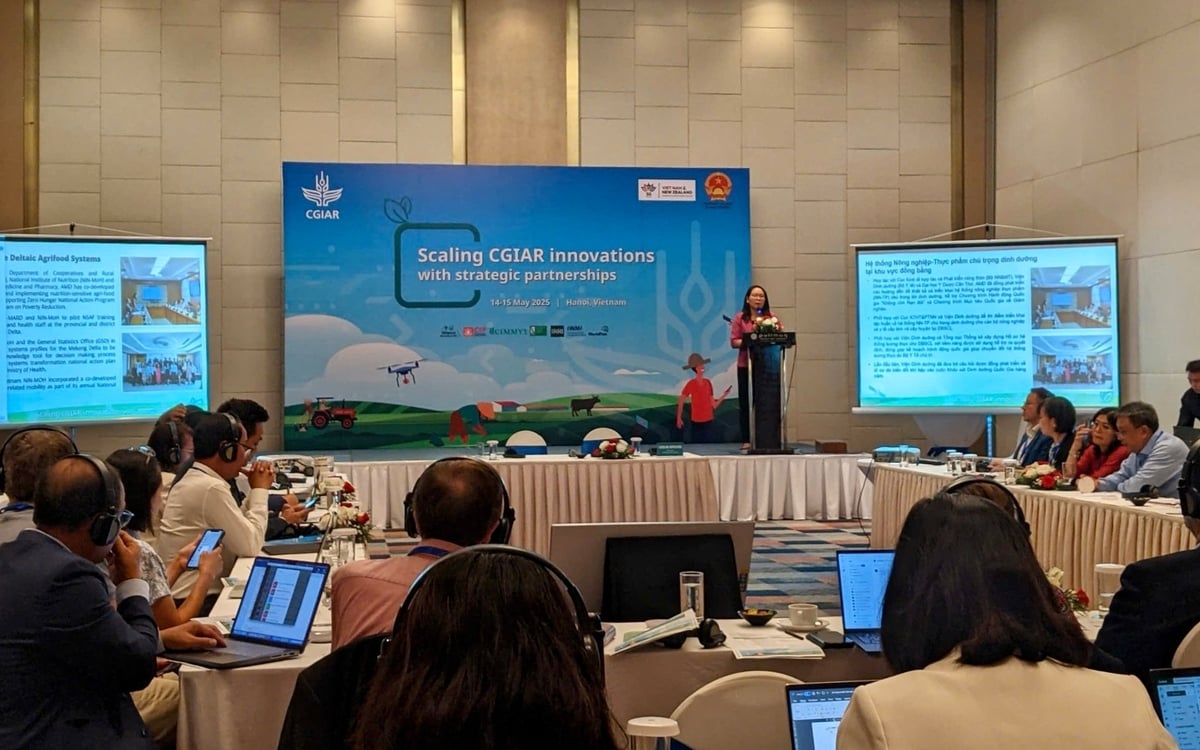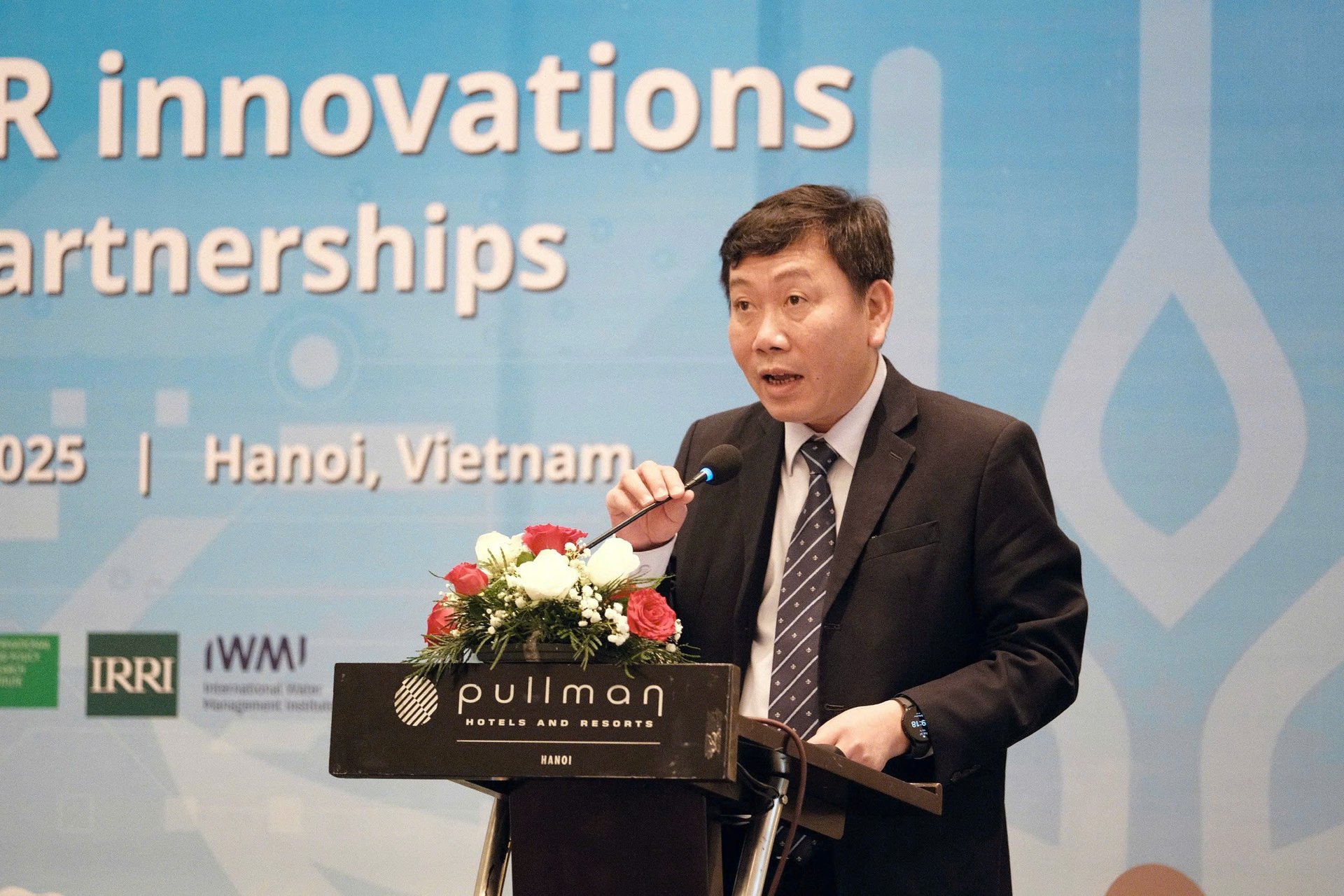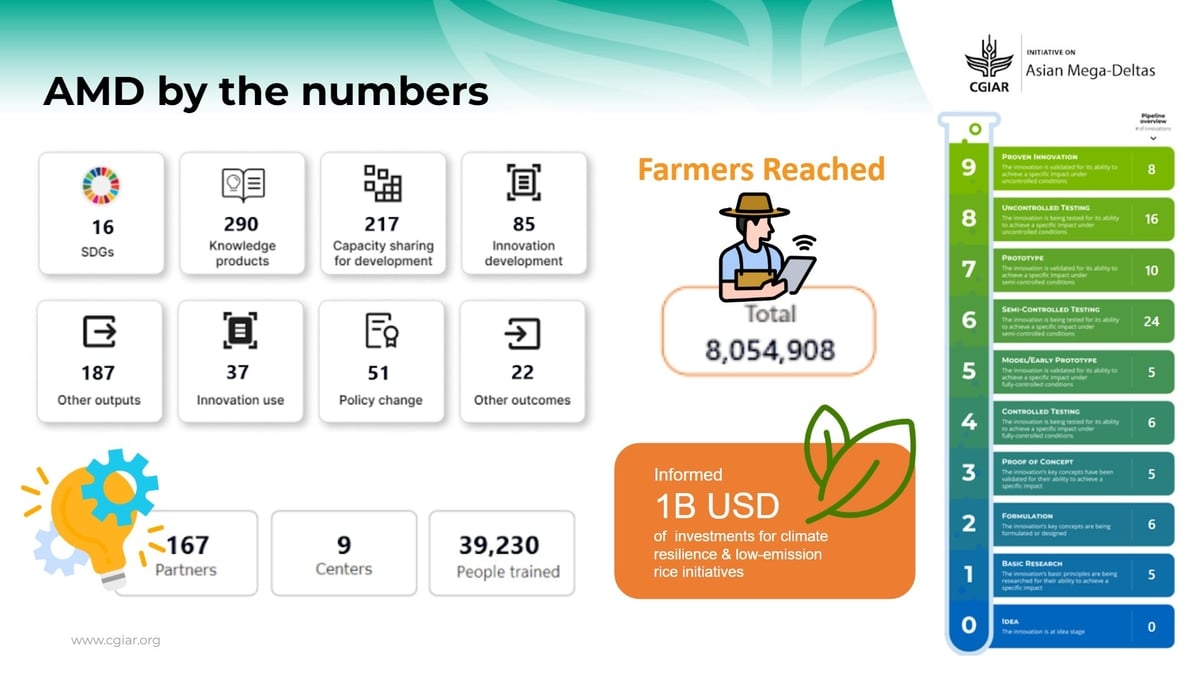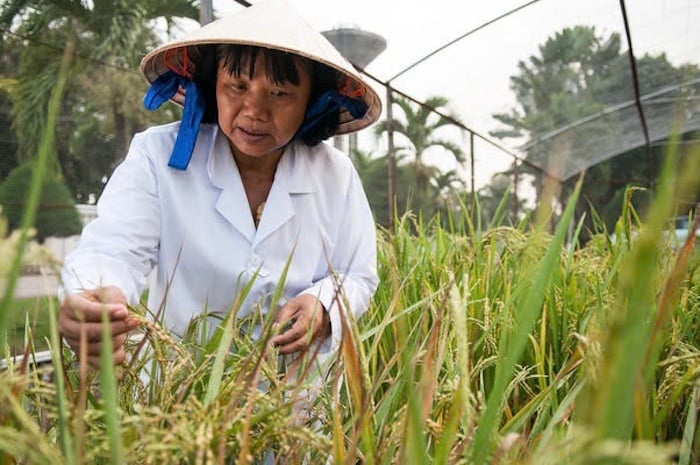December 3, 2025 | 22:43 GMT +7
December 3, 2025 | 22:43 GMT +7
Hotline: 0913.378.918
December 3, 2025 | 22:43 GMT +7
Hotline: 0913.378.918

Assoc. Prof. Dr. Truong Thi Tuyet Mai, Deputy Director of the National Institute of Nutrition (Ministry of Health), presented an initiative on climate, nutrition, and food systems at the CGIAR workshop. Photo: KC.
On May 14, the Ministry of Agriculture and Environment (MAE) coordinated with the Consultative Group on International Agricultural Research (CGIAR) to organize a workshop on Scaling CGIAR Innovations with Strategic Partnerships.
In his opening remarks, Dr. Nguyen Do Anh Tuan, Director General of the International Cooperation Department (MAE), emphasized that 2025 marks an important milestone in the development of sustainable agriculture. It is also an opportunity to assess the achievements of the CGIAR Initiative on Asian Mega-Deltas (AMD) and to prepare for the next phase of CGIAR’s science program, Scaling for Impact (S4I).
"In the face of complex climate change challenges, no country, organization, or individual can tackle them alone. The journey to transform agricultural systems is a long run, not a sprint. Success can be attained from persistence, cooperation, and continuous innovation," he stated.

According to Mr. Nguyen Do Anh Tuan, the AMD Initiative and its partnership mechanisms have promoted numerous initiatives in rice production, sustainable agronomy, as well as aquaculture development. Photo: Quynh Chi.
Dr. Bjoern Ole Sander, AMD Initiative Lead, affirmed: "We have achieved many significant results and milestones through effective partnerships and proven approaches."
During the 2021-2024 period, the AMD Initiative successfully developed 85 innovations, organized over 200 capacity-building activities, reached more than 8 million farmers, and informed USD 1 billion in investments for projects aimed at enhancing climate resilience and reducing emissions in rice production across delta countries including Bangladesh, Cambodia, India, Myanmar, and Vietnam.
Collaborative efforts and engagement also attracted public sector investments to support the co-development and dissemination of agro-climatic bulletin in Vietnam, as well as the scaling of Digitally Enabled Climate Advisory Services (DCAS), which were tailored to the specific contexts and user needs in four project countries.
Over the course of three years, cost-effectiveness research supported by AMD has laid the foundation for the development of nutrition-focused national guidelines. A total of 11,000 farmers and 52,000 consumers were trained, contributing to key policies such as Cambodia’s Food Security and Nutrition Strategy and Vietnam’s National Zero Hunger Action Program. Also for the first time, the Vietnam Ministry of Health’s National Institute of Nutrition incorporated a co-developed questionnaire on climate-related mobility into its annual National Nutrition Survey.

A summary of the achievements of the AMD Initiative. Photo: CGIAR.
Dr. Bjoern Ole Sander noted that the AMD Initiative, strongly supported by the Government of New Zealand, aims to bolster efforts to promote climate-resilient and highly productive food systems.
The data and tools developed under the AMD Initiative have helped mobilize significant financial resources for initiatives focused on climate resilience and low-emission rice production. Notable examples include the Rice Monitoring and Reporting System (RiceMoRe) and the Climate Smart Mapping and Adaptation Planning tool (CS-MAP), which have been prioritized under Vietnam’s Green Growth Strategy. In Thailand, the AMD-promoted low-emission rice production model has been included in the country’s Nationally Determined Contribution (NDC) strategy as a key mitigation solution.
He recommended, "In the next phase, we will strengthen and expand sustainable partnerships, scale up proven innovations and approaches, promote the integration of cross-cutting strategic themes, especially gender equality and social inclusion (GESI) and invest in long-term sustainability."

The next phase of the AMD Initiative will place greater emphasis on gender equality and social inclusion. Photo: CGIAR.
Ms. Caroline Beresford, New Zealand Ambassador to Vietnam, expressed her delight at the achievements of the AMD initiative. According to her, scaling the impact of CGIAR research in Southeast Asia must always go hand-in-hand with strategic partnerships to promote sustainable and inclusive development.
Ambassador Caroline Beresford reaffirmed New Zealand's commitment to continuing its support for agricultural innovation initiatives, facilitating collective efforts to improve and support smallholder farmers and vulnerable communities across the Asian region.
CGIAR’s Science Programs and Initiatives are expected to focus on key themes such as: breeding for the future, genebanks, policy innovation, improving diets and nutrition, multifunctional landscapes, food security and food systems, sustainable livestock and aquaculture, sustainable farming, climate action, scaling for impact, as well as digital transformation, capacity sharing, gender equality, and social inclusion.
Translated by Kieu Chi

(VAN) This is an initiative of MAE aimed at creating a unified coordination mechanism to implement agricultural cooperation programs with developing countries.

(VAN) Con Dao National Park officially received its Green List status after it was announced at the IUCN World Conservation Congress in Abu Dhabi in October.

(VAN) The National Assembly’s inspection delegation called for a renewed approach to marine economic development, the removal of legal 'bottlenecks,' and strengthened marine environmental protection.

(VAN) The inevitable path forward is to reorganize production along the value chain, utilizing cooperatives as the core, enterprises as the driving force, and farmers as the central subjects.

(VAN) On November 28, Minister Tran Duc Thang, together with China's Minister of Agriculture and Rural Affairs Han Jun, chaired the 2nd meeting of the Viet Nam - China Agricultural Cooperation Committee.

(VAN) Forest carbon credits are only accepted when they ensure absolute environmental integrity, additionality, permanence, and transparency.

(VAN) Viet Nam partners with Beijing on controlling air pollution, cross-regional management, high-tech monitoring and relocating polluting facilities.